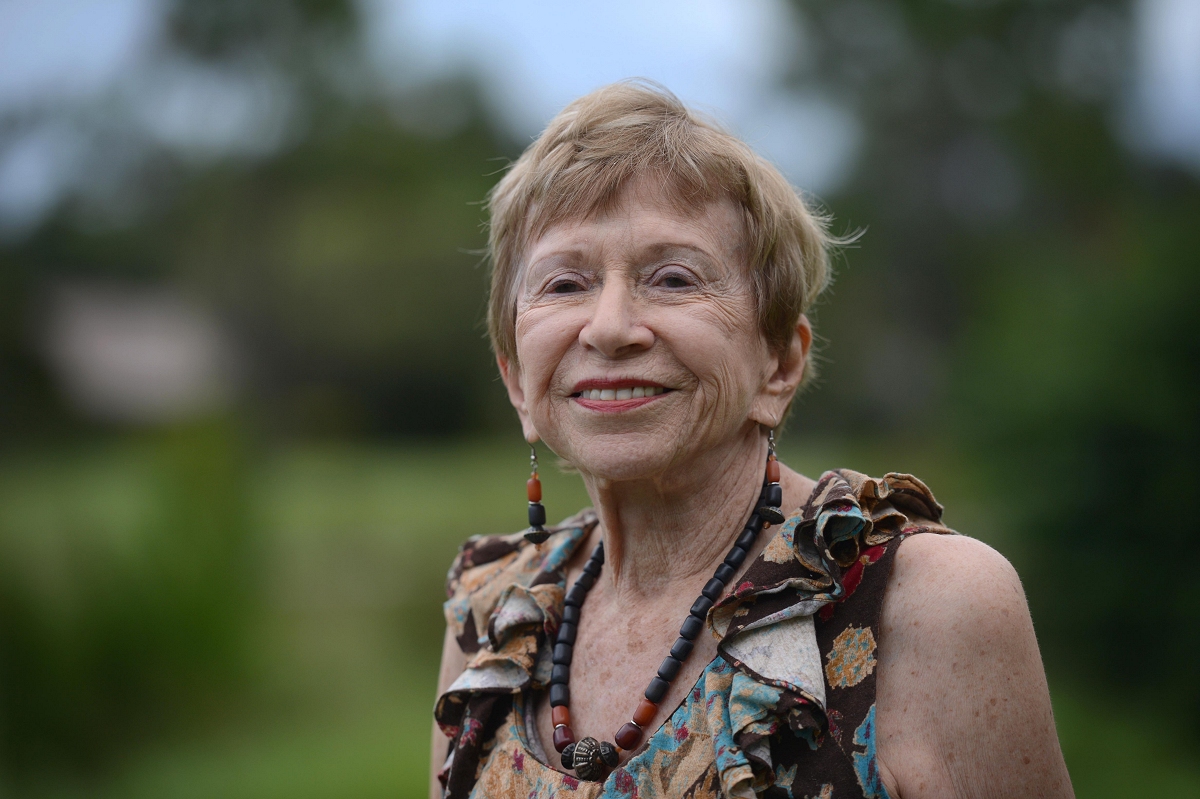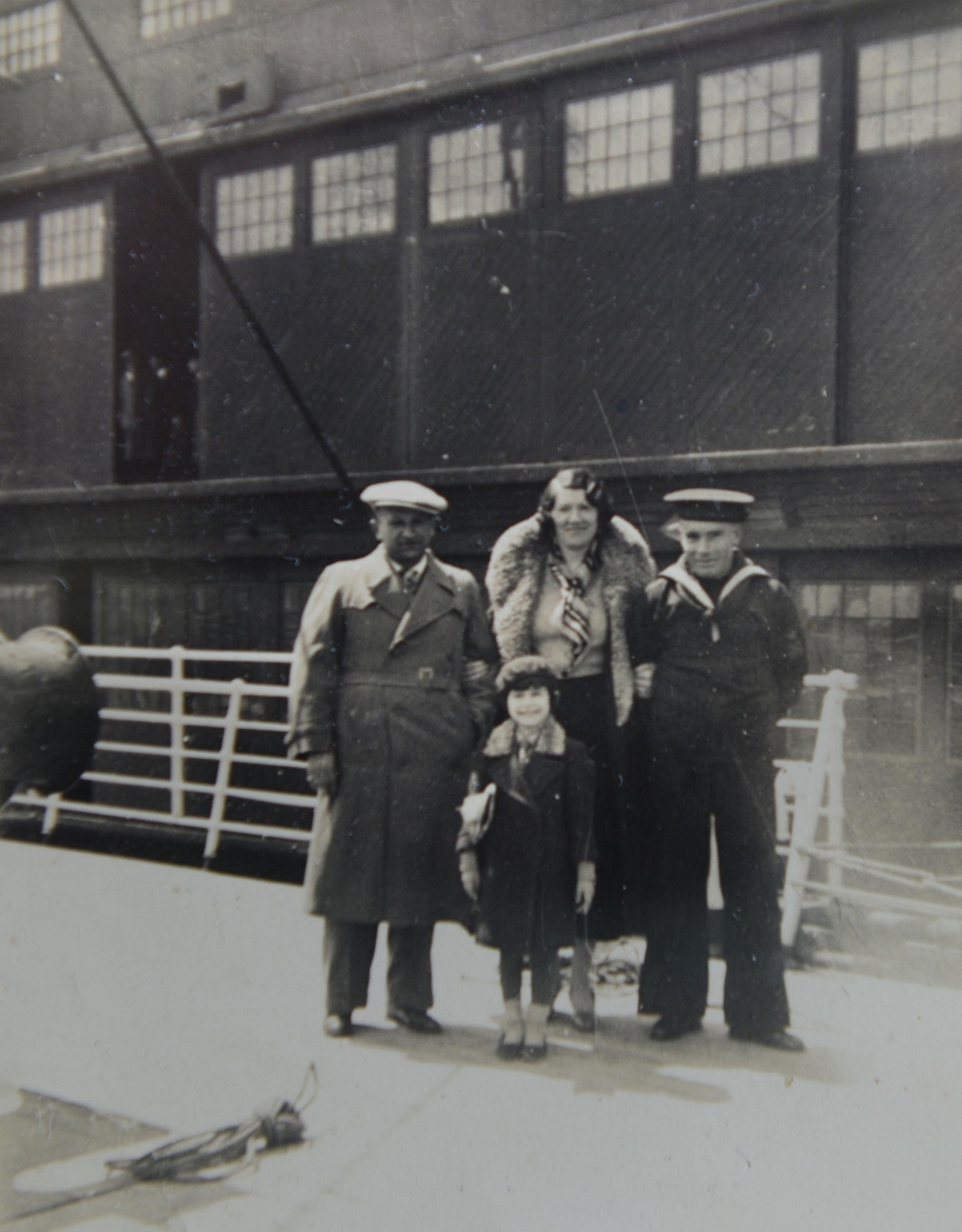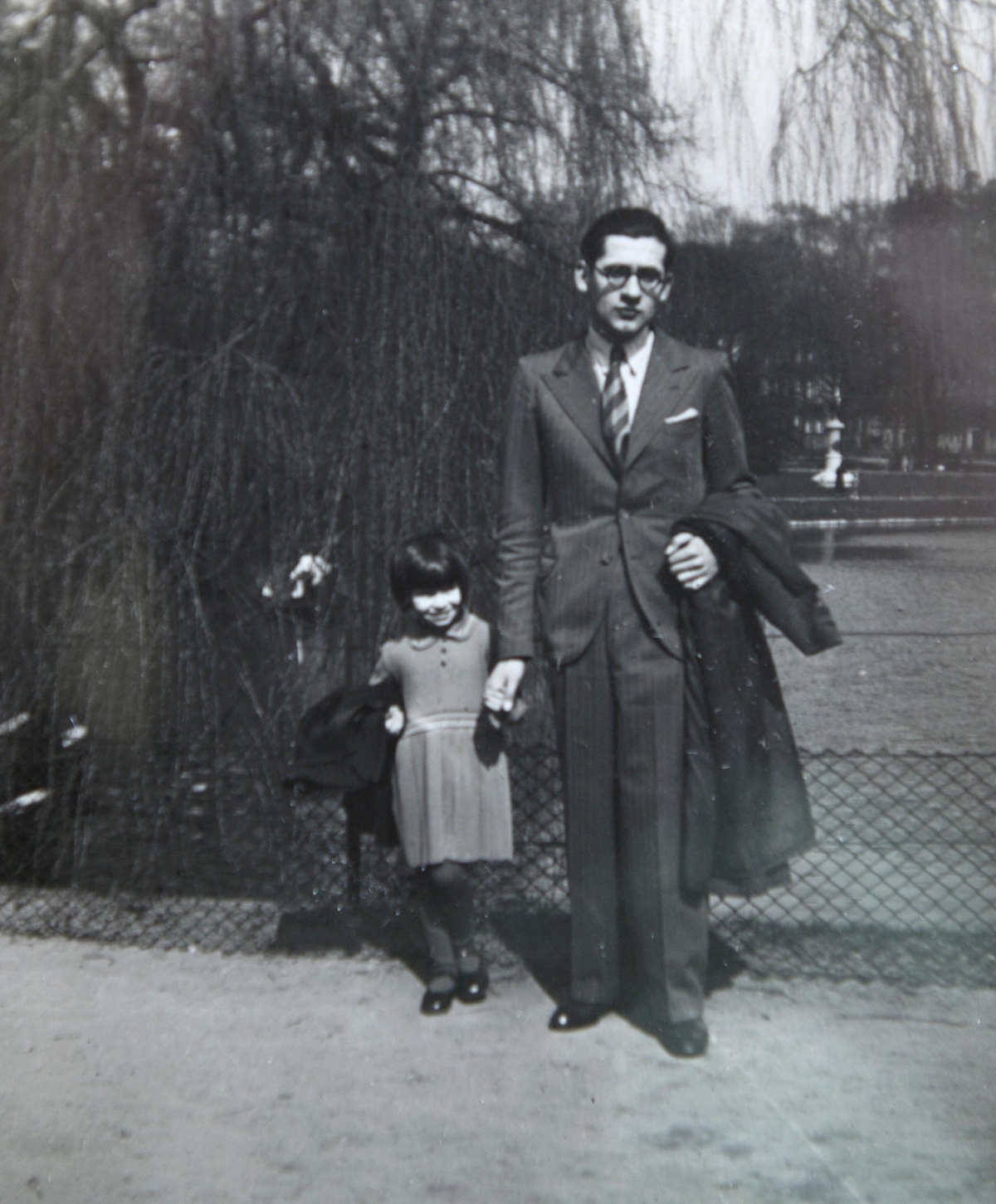Sonia Pressman Fuentes
Feminist returns to Belgium, site of Holocaust escape
By BILLY COX
September 23, 2013
Sarasota resident and National Organization for Women co-founder Sonia Pressman Fuentes’ family fled from Europe on a Red Star Line ship as the Nazi shroud fell.
So finally, after all this — Phi Beta Kappa at Cornell, first in her University of Miami Law School class, first woman in the Office of General Counsel to the Equal Employment Opportunity Commission, co-founder of the National Organization for Women — Sonia Pressman Fuentes is returning to the city that enabled her journey of firsts.
Her time there was brief. She was too young to remember it. There are no deep roots to contemplate, only a handful of old photos of a little girl posing with family members who are now long deceased.
Yet, when the 85-year-old Sarasota resident addresses distinguished audiences this week in Antwerp, Belgium, it will likely stoke deep-seated emotions — among hosts as well as guests.
"We count on you for our entire opening week," said Luc Verhayen in a recent email to Fuentes. "Your story is the story of the museum. Therefore, your responsibility is not less than mine."
Verhayen is project coordinator for the Red Star Line Museum, a stellar new bricks-and-mortar homage to what was once among the busiest passenger-ship operations in the world. From 1873 to 1934, Red Star Line's fleet of steamships ferried more than 2 million European immigrants to North America. Roughly a quarter of those are estimated to have been Jews fleeing czarist Russia or, during Red Star's final days of American ownership, Nazi Germany.
Composer Irving Berlin, future Israeli prime minister Golda Meier, "father of the nuclear Navy" Hyman Rickover — for generations of young Jewish refugees, Red Star's Antwerp-to-New York passage would become a lifeline to freedom.
Among the last out under an ownership structure that ended in 1934 was the Pressman family. Fuentes' parents were native Poles who had resettled in Berlin before World War I. When Hitler's Reich emerged from its ashes, the Pressmans boarded the SS Westernland, which had taken Albert Einstein to America six months earlier.
In 2004, the city of Antwerp purchased the liner's old terminal buildings with an eye on converting them into a museum. Its grand opening is set for Saturday.
According to Verhayen, researchers have found just five survivors of those Atlantic voyages. Sonia Fuentes is the only one of those last living links scheduled to speak during the week-long buildup. The prospect has been humbling, and revives age-old questions about the arbitrary nature of fate.
"I think about the decisions of life being made for me so long ago, and I had no say in it," she says. "How's that different from any other child?"
Her brother's diary
Born in Germany, Fuentes was no stranger to her own history.
Her mother and father, Hinda and Zysia Pressman, talked openly about their ordeal. Her brother Hermann, 14 years her senior, kept an extensive diary when he left Germany for Belgium during the Nazi's ascent. Hermann would persuade his reluctant parents it was time for them to get out as well.
"I didn't become an activist until I joined the EEOC," recalls Fuentes, who grew up in New York and was on the ground floor of NOW with Betty Friedan in 1966. "But there's no question in my mind that, because I was a Jew, I was more sensitive to discrimination. I remember, when I was 12, 13, being aghast at the racist headlines in the southern papers on the way to Miami Beach, seeing all the segregated restrooms and drinking fountains."
But Fuentes knew little about Red Star Line until 2009, when she read a magazine article about the museum project, which was making long-shot appeals for survivors' tales. Although she had no memories to speak of, her parents saved photos. And she had copies of her brother's diary, which has been donated to the U.S. Holocaust Memorial Museum. Hermann kept notes from 1932 to 1935. Key entries from his struggles in Antwerp would ignite a contemporary debate among historians in Belgium and Israel.
Museum planners were so buoyed by Fuentes' response, they sent a filmmaker to Sarasota to interview her in 2010. And Belgium had an unexpected local connection. Philip Heylen, Antwerp's Vice Mayor for Culture and Tourism, is a frequent visitor to Sarasota, where he vacations at Helmsley Sandcastle on Lido Key. Fuentes and Heylen would become friends.
In 2011, Heylen spoke to the Congregation for Humanistic Judaism at Unity Church in Sarasota, where he made a pitch to support the $25 million museum project. He sketched Red Star Line's history, a 19th-century Belgian-American shipping operation that would transport 55 million passengers, mostly tourists, to North American ports in New York, Philadelphia, and Halifax, Canada.
The arrangement would disintegrate after the 1929 stock market crash, when President Roosevelt provided irresistible New Deal incentives for American entrepreneurs to liquidate their multi-national shipping assets and invest in the U.S. The company was sold to Jewish-German magnate Arnold Bernstein in 1934. Bernstein himself would emigrate to the States, but not before being imprisoned by the Nazis and losing his fortune.
Some missing pieces
Borrowing from the diary of Fuentes' brother, Heylen described Hermann's frenetic efforts to secure residency after persuading his parents to leave Berlin — and their successful clothing business — in 1933.
Fuentes spent nine months in Antwerp as a kindergartner, oblivious to the politics of survival swirling around her.
"The Belgian authorities were far from pleased with the arrival of Jewish refugees in the country," Heylen told Sarasotans. "German refugees were still allowed in, but Jews of Polish origin were not granted residence or work permits."
Defeated, the Pressmans were able to obtain U.S. visas, and set sail for New York on April 20, 1934. Sonia Fuentes would not retrace her family's footsteps to Antwerp until 2011, intrigued by the museum's interest in her story. After sharing with researchers vintage family photos and a copy of Hermann's diary, both she and Belgium would discover, amid the murky lines of ethics and morality forged by war, some crucial missing pieces.
"The fact that Sonia gave us this diary led us to the idea of looking into the archives of the Aliens Police," states an online summary from the Red Star Line Museum, which will permanently preserve her family's files. "In the Public Records Office in Brussels we found a comprehensive dossier on the Pressman family that the Belgian Security Service had put together: the visa applications, the intercession of the mayor of Antwerp and the eventual deportation by the Department of Belgian National Security."
Fuentes would meet historian Frank Caestecker, an authority on immigration policy at Ghent University. Caestecker traced her family's futile attempts at relocation to one Robert de Foy, head of the Belgian State Security Service.
De Foy not only denied the Pressmans' permission to remain in Belgium, he recommended their deportation to Poland. When Antwerp mayor Camille Huysmans refused to comply, de Foy ordered federal police to arrest the family.
By then, the Pressmans were on their way to the U.S.
Piece it together
The incident might have languished amid a multitude of obscure European footnotes on anti-Semitism, except that the always-outspoken Fuentes discovered de Foy is listed as a "Righteous Gentile" by Israel's Holocaust research center, Yad Vashem.
In 1975, Yad Vashem posthumously honored de Foy for the surreptitious assistance he gave Jews in Belgium during the Nazi occupation.
"I wrote to Yad Vashem and told them de Foy's name should be taken out and Camille Huysmans should be put in there," says Fuentes, who saw paperwork documenting de Foy's arrest and deportation of "hundreds" of Jewish refugees.
Yad Vashem's Commission for the Designation of the Righteous completed its review this year and declined to take action.
"They said there was not enough information to remove de Foy's name and not enough information about Huysmans," says Fuentes.
Either way, Belgium pauses this week to celebrate a moment in time where passenger ships were the world's dominant mode of mass transit, from the huddled masses to the idle rich. The Red Star Line Museum festivities will draw luminaries from Their Majesties King Philippe and Queen Mathilde of Belgium, to fashion designer Diane von Furstenberg, to current and former ambassadors on both sides of the Atlantic.
Joining them for the red-carpet treatment will be an American woman who will likely never know how close she came to being whisked into oblivion. Seventy-nine years later, Sonia Fuentes is still trying to piece it together.
"You can't always rely on your memory, even in cases where you played a part," says the retired lawyer. "Eyewitnesses make terrible testimony. But we need to find out, to the extent that we can, what happened in the past so we can make better decisions today."
© 2013 Sarasota Herald-Tribune
(Click on the images to enlarge)
-

Sonia Pressman Fuentes, 85, is returning to Belgium as one of the last surviving passengers of the Red Star Line of ships that ferried Europeans to North America. Fuentes' family escaped from the Nazis in 1934. -

Sonia Pressman Fuentes with her parents, Zysia and Hindaleah Pressman, and an unidentified sailor in Antwerp. Fuentes recalls the photo being taken in front of the SS Westerland before they sailded to New York in 1934. -

Five-year old Sonia Pressman Fuentes with her brother Hermann in Antwerp, circa 1933.